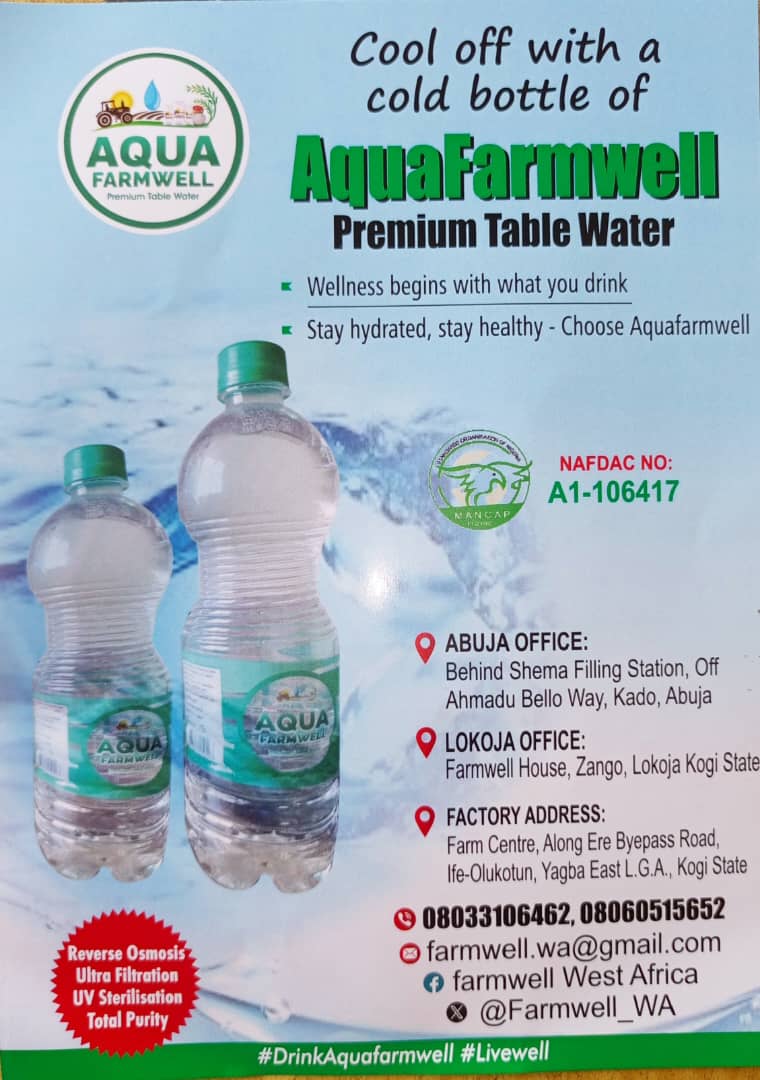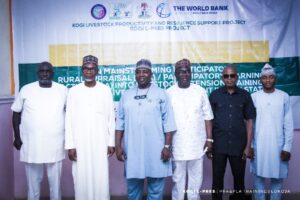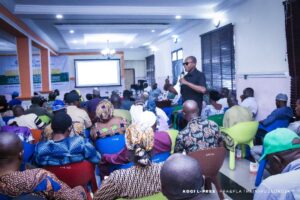

The Kogi State Livestock Productivity and Resilience Support Project (Kogi L‑PRES), has commenced a capacity‑building workshop to mainstream Participatory Rural Appraisal (PRA) and Participatory Learning Action (PLA) methodologies into livestock extension training for Livestock Development in Kogi State
 The event, held across the three Senatorial Districts of Kogi State, gathered over 300 Livestock Extension Agents, Lead Livestock Farmers, Key Value Chain Actors and community service providers, among others.
The event, held across the three Senatorial Districts of Kogi State, gathered over 300 Livestock Extension Agents, Lead Livestock Farmers, Key Value Chain Actors and community service providers, among others.
While declaring the workshop open in Lokoja, the Commissioner for Livestock Development, Dr Olufemi Bolarin, expressed pleasure at the gathering, noting that livestock is vital to Kogi’s economy, food security, and poverty reduction.
He highlighted challenges such as limited extension access, inadequate technical skills, and low technology adoption, and reaffirmed the state government’s commitment to empowering its workforce.
 Represented by the Ministry’s Permanent Secretary, Dr Abdulsalam Hadi, the Commissioner urged participants to actively share experiences and learn for the benefit of farmers.
Represented by the Ministry’s Permanent Secretary, Dr Abdulsalam Hadi, the Commissioner urged participants to actively share experiences and learn for the benefit of farmers.
Earlier in his welcome address, the State Project Coordinator of L-PRES, Mr Abdulkabir Onoruoyiza Otaru, said the training kicked off on Thursday in Lokoja for participants from Kogi West, continued on Friday in Anyigba for the East, and today, Saturday, in Okene for Kogi Central participants.
He said the workshop aims to strengthen participants’ ability to integrate PRA/PLA techniques into their extension / Advisory service delivery at Livestock Value Chain Clusters across the 21 LGAs of Kogi State.
According to him, it will improve the relevance and effectiveness of training programmes, address the specific needs of rural livestock farmers, and accelerate adoption of innovative technologies and Good Animal Husbandry Practices.
“The programme is structured as a “Train‑of‑Trainers” (ToT) initiative targeting 300 participants, including livestock extension agents, lead livestock farmers, and key value‑chain actors.
Mr Otaru noted that while Kogi L‑PRES initially recorded over 54,000 livestock farmers at baseline, a re‑validation exercise identified 32,000 genuine livestock farmers, declaring that the era of portfolio farmers without farms is gone in Kogi State.
He emphasised that the trained livestock extension agents and lead livestock farmers will cascade the training to at least 32,000 farmers across 64 Livestock Value Chain Clusters in the 21 local government areas of the state.
He noted that competent resource persons from the National Agricultural Extension Research and Liaison Services (NAERLS), ABU‑Zaria, will facilitate the workshops, supported by a National Extension Service Specialist from L‑PRES National Coordination Office, Abuja.
Mr Otaru thank and appreciate the Governor, His Excellency, Alhaji Ahmed Usman Ododo for his unwavering support toward empowering Kogi livestock farmers, enhancing livestock productivity, and ensuring the achievement of food security in the state.
He urged participants to engage actively, noting that the workshop should be a “contributory and participatory program” that will drive sustainable livestock management and long‑term community resilience, especially in underserved areas.
The Managing Director, Kogi State Agricultural Development Project (ADP), Dr Bello George Ogirima, described the training workshop as a crucial step toward building the Livestock Extension Agents and Lead Livestock Farmers capacity and strengthening adaptive strategies for livestock production.
He emphasized that livestock extension agents are key to quality extension/advisory service delivery at the agribusiness clusters and urged full cooperation to complement project goals.
A Livestock Extension Agent, Mr Johnson Olusegun from Mopamuro LGA, commended Kogi L‑PRES for prioritizing continuous training and retraining of extension agents and farmers, stating the workshop would empower them to address challenges hindering livestock value chains.
The workshop featured presentations from resource persons on topics such as Participatory Needs Assessment (PNA), PRA/PLA in livestock extension, Participatory Planning and Prioritization, Participatory Technology Development and Testing, and Monitoring & Evaluation Methods, among others.
The workshop is expected to mark a significant step toward mainstreaming participatory approaches in Kogi’s livestock sector, laying a foundation for scalable and resilient farming practices across the state.
